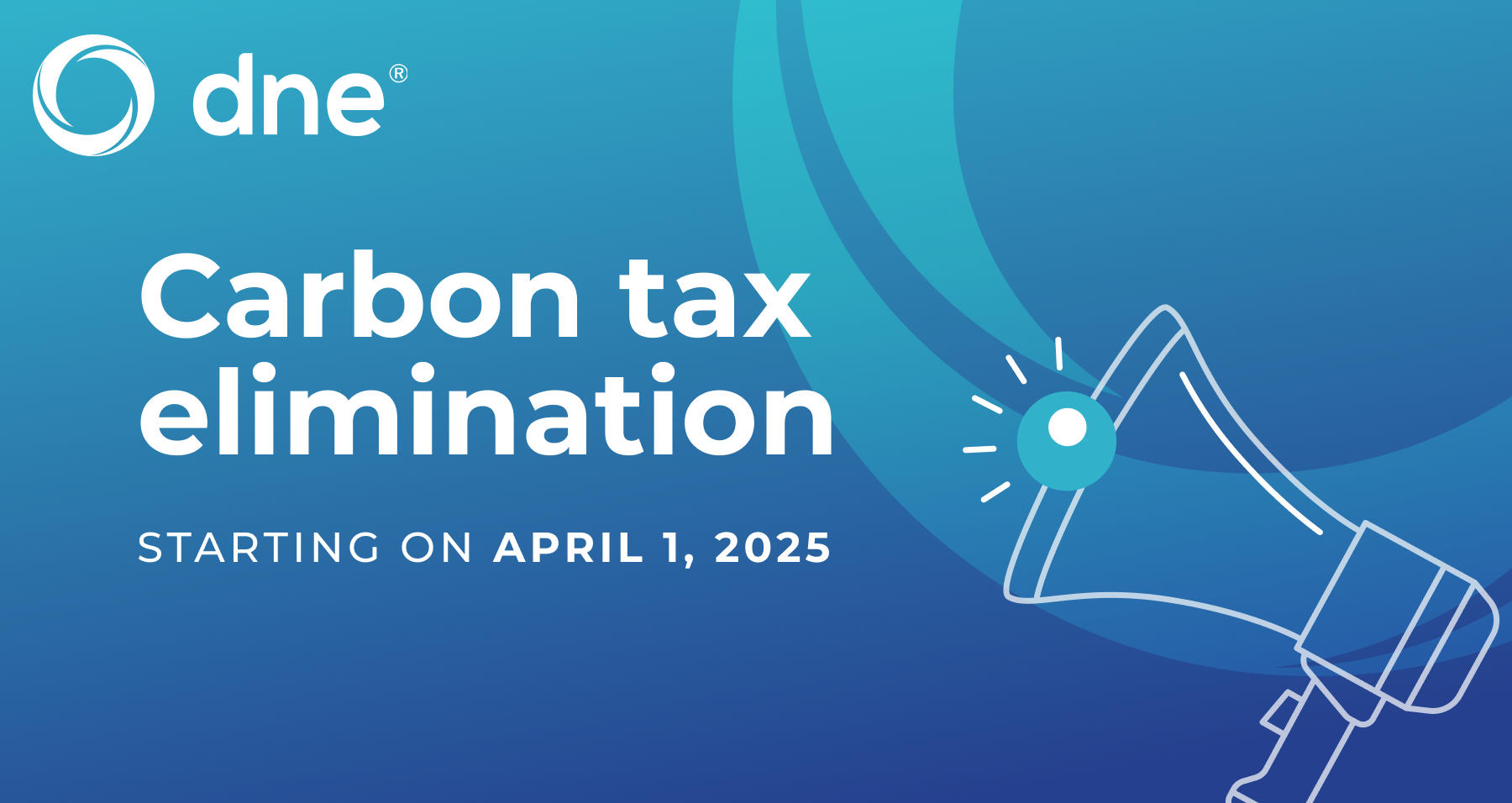The recent announcement of Canada’s carbon tax elimination has sparked significant discussion about its impact on both consumers and businesses. As your energy management partner, we’re here to break down what this change means for your business’ bottom line and energy strategy moving forward.
Understanding the carbon tax elimination
Effective April 1, 2025, the federal government is eliminating the consumer carbon tax. This policy shift represents a major change in Canada’s approach to carbon pricing.
The federal carbon tax has added more than 17 cents per liter to gasoline in most provinces. As of April 01, $4.095/GJ will be removed from most customers’ price of natural gas in Alberta (more below). For businesses with transportation fleets or large heating demands, this has represented a substantial operational expense.
What will get cheaper?
Immediate cost reductions
For businesses, the most noticeable and immediate impacts will be:
- Heating expenses: Businesses that rely on natural gas or heating oil for space or process heating can expect lower monthly energy bills starting in April. According to Desjardins Economics, natural gas prices are projected to decrease by 12.8% between March and April as a result of the federal carbon tax elimination. In Alberta, this equates to a precise reduction of $4.095 per gigajoule (GJ), which amounts to approximately $500 in annual savings for the average household.
- Transportation costs: The elimination of the federal carbon tax is expected to lower gasoline prices by approximately 17 cents per liter. This change can result in immediate savings at the pump for businesses with vehicle fleets or significant shipping requirements. However, the actual impact may vary by province due to differences in local fuel taxes and regulations.
- Operational overhead: Lower energy costs could offer meaningful relief for energy-intensive businesses.
What this means for your business’s energy strategy
As your energy management partner, we see this policy change as an opportunity to reassess your energy approach:
Reassess your energy budget
The carbon tax cut provides an excellent opportunity to review your energy expenditures. The savings from reduced fuel and heating costs could be:
- Reinvested in energy efficiency improvements
- Used to offset other rising business costs
Consider the long-term picture
While the consumer carbon tax is being eliminated, it’s worth noting that:
- The industrial carbon pricing system remains in place as a key element of Canada’s Emissions Reduction Plan
- Future administrations may implement different carbon pricing mechanisms
Conclusion
The elimination of the carbon tax marks a significant shift in Canada’s climate policy, offering immediate relief on certain energy costs. But for forward-thinking businesses, this isn’t just about short-term savings — it’s an opportunity to rethink and refine their broader energy strategy.
By approaching this transition strategically, your organization can strengthen its competitive advantage.
Curious about how much your business could save — and how to turn these changes into strategic gains? Connect with our team for a personalized energy assessment and expert guidance on optimizing your approach.




